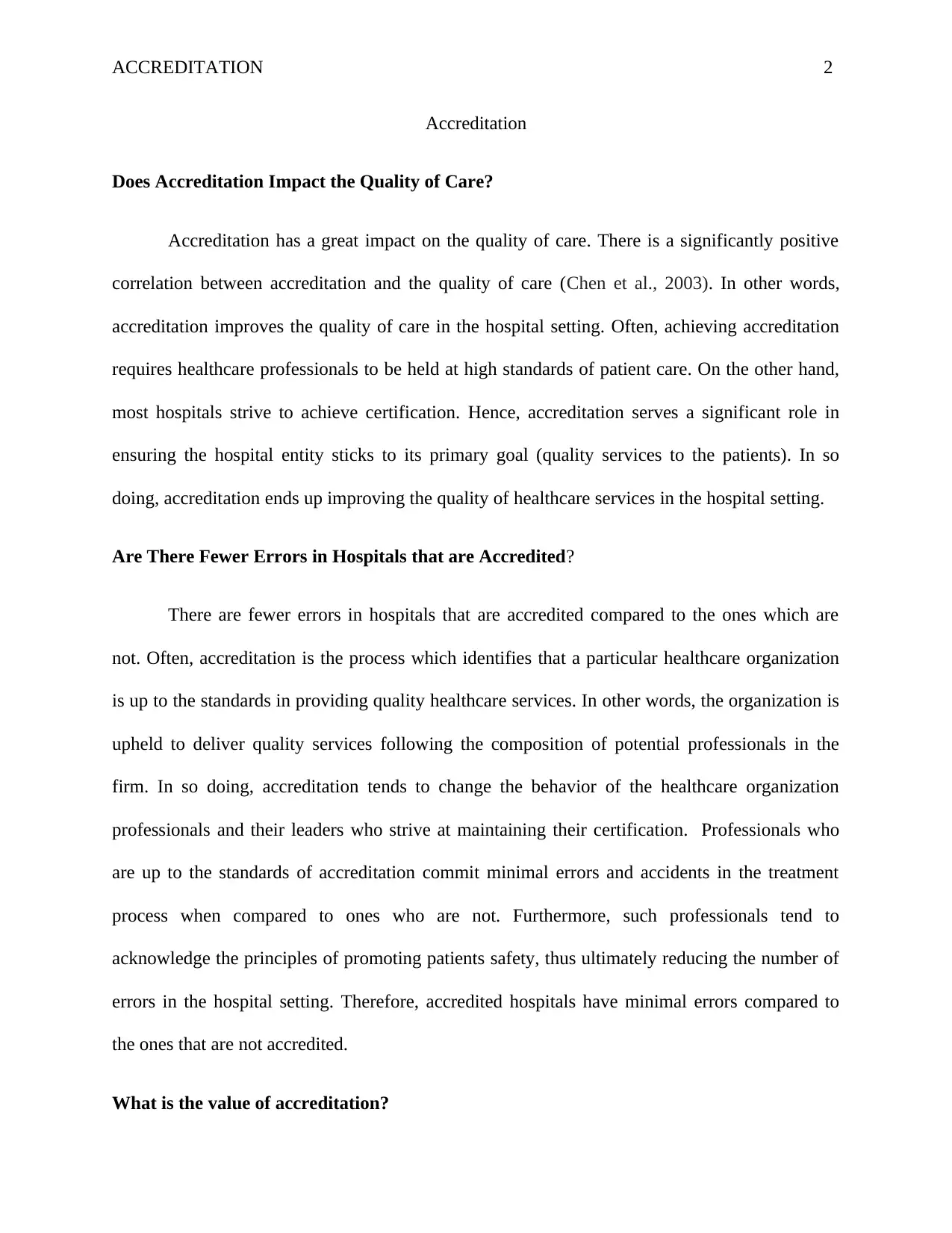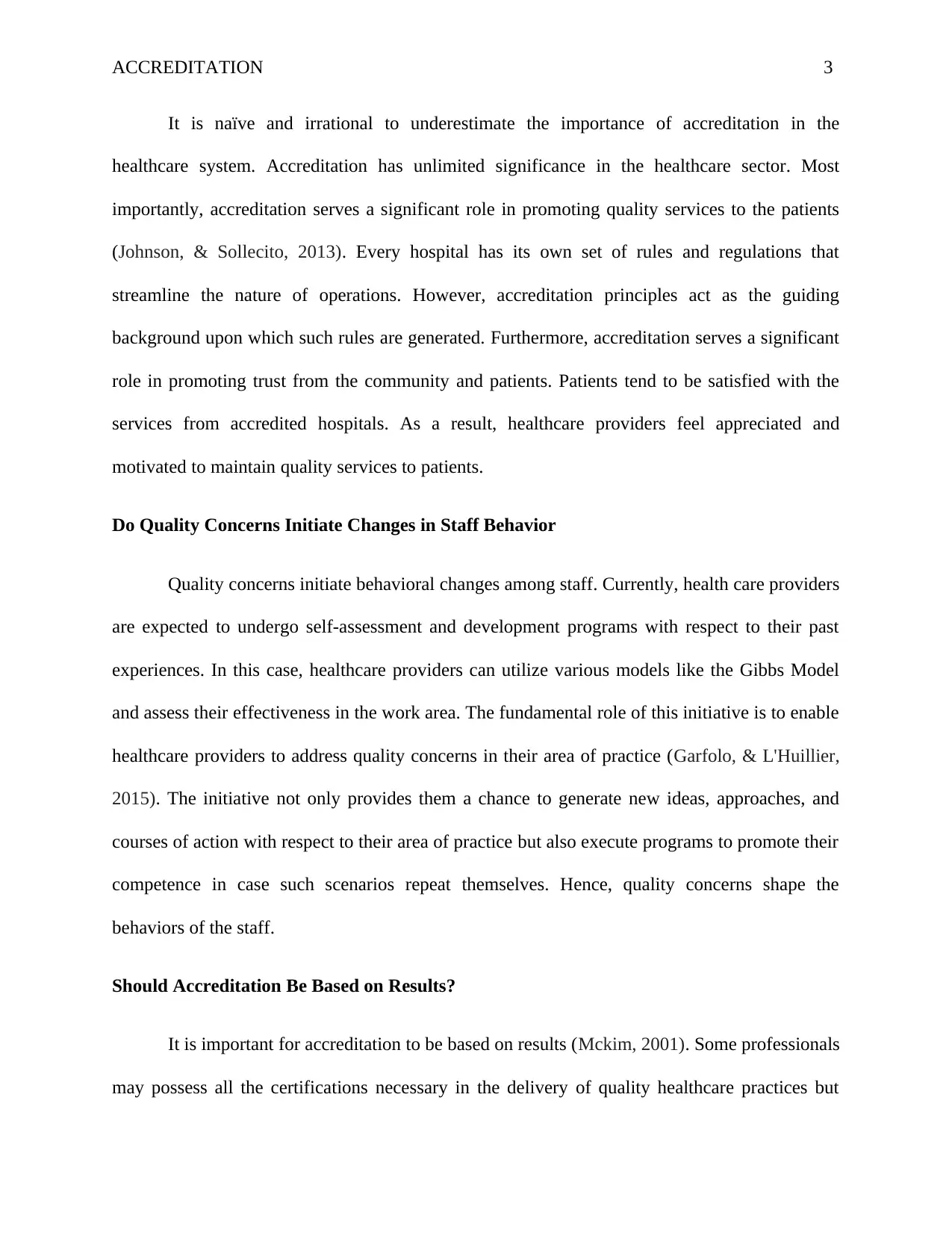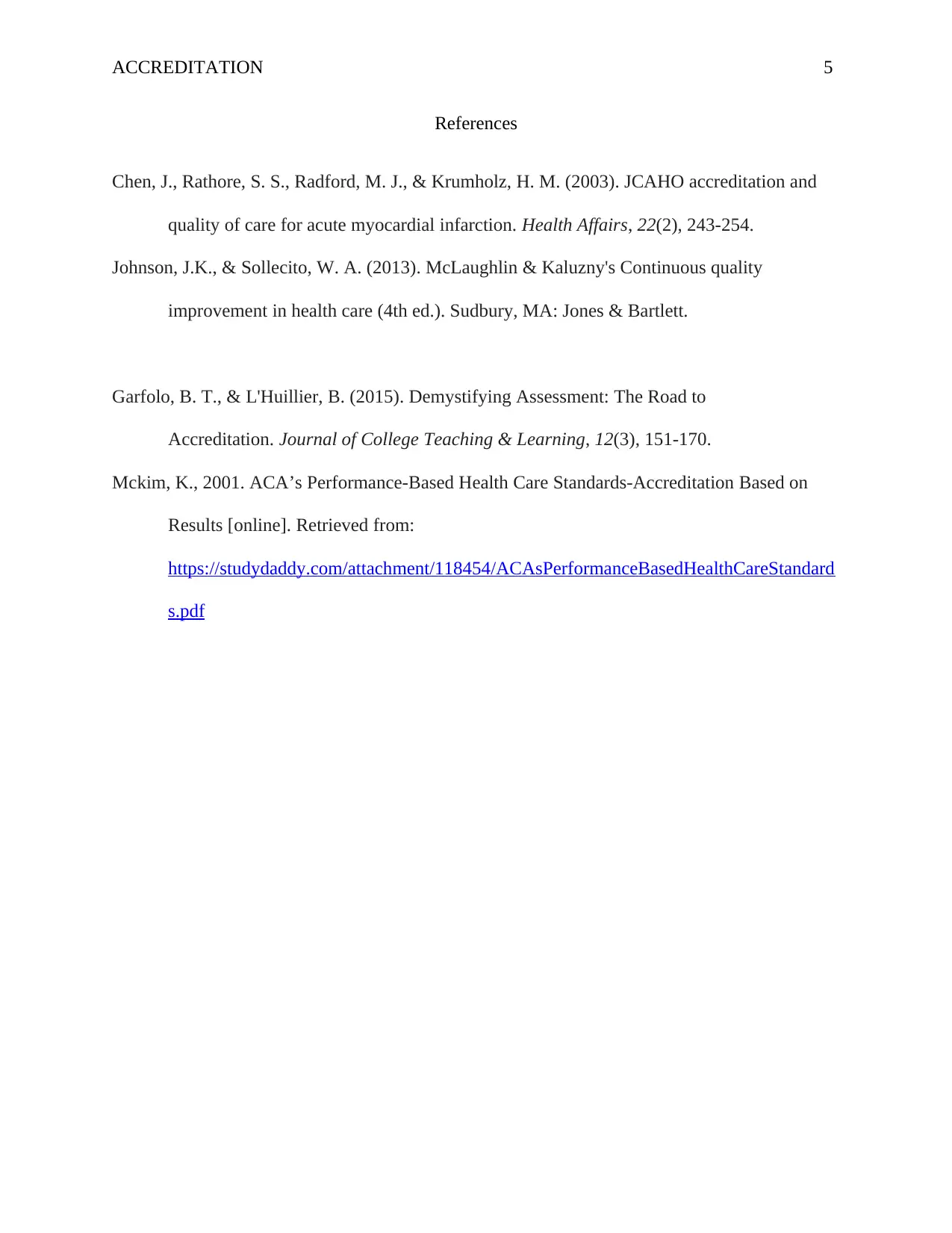Accreditation, Quality of Care, and Staff Behavior in Healthcare
VerifiedAdded on 2022/10/16
|5
|823
|224
Report
AI Summary
This report delves into the significant impact of accreditation on healthcare quality, exploring its correlation with improved patient care and a reduction in errors within accredited hospitals. It examines the relationship between accreditation and staff behavior, highlighting how quality concerns initiate changes in healthcare professionals' practices. Furthermore, the report emphasizes the value of accreditation in promoting trust and quality services, while also discussing the importance of basing accreditation on results to ensure competence and effective healthcare delivery. The report also includes a discussion on the link between accreditation and quality improvement in Local Health Departments (LHDs), analyzing how the accreditation process can identify areas for future quality improvement work and the impact of site visits and reports on agency practices. The analysis incorporates the benefits of accreditation, such as improved policies, teamwork, and staff appreciation of public health services.
1 out of 5












![[object Object]](/_next/static/media/star-bottom.7253800d.svg)